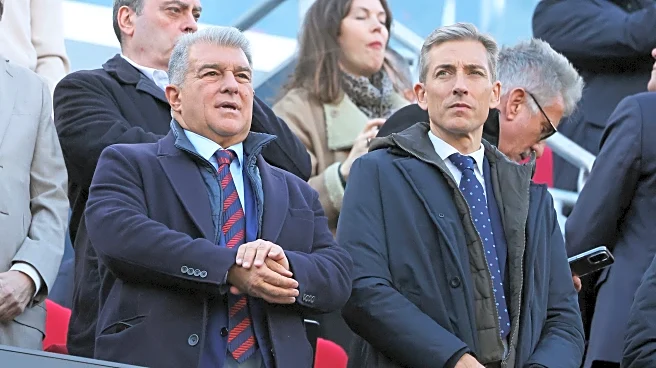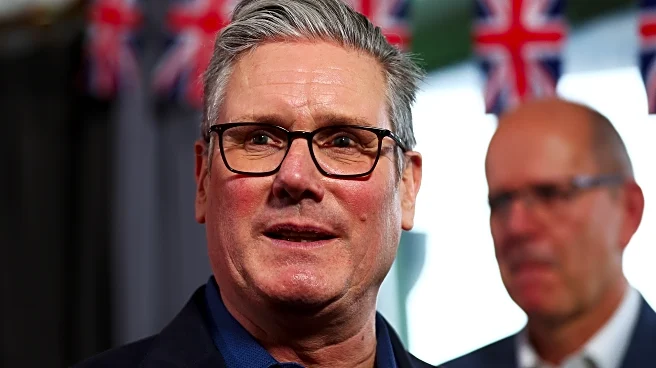What's Happening?
Merrick Bobb, a key figure in the police oversight movement, has died at the age of 79. Bobb was instrumental in reforming law enforcement practices, particularly in Los Angeles, where he served as special counsel to the L.A. County Board of Supervisors. His work included addressing issues of excessive force and violence within the Los Angeles Police Department and the Sheriff's Department. Bobb's career was marked by his role in the Christopher Commission, which investigated the LAPD following the Rodney King incident. Despite being paralyzed by Guillain-Barré syndrome, Bobb continued his advocacy, founding the Police Assessment Resource Center in 2001. His efforts extended to Seattle, where he served as an independent monitor for the police department's consent decree with the U.S. Department of Justice.
Why It's Important?
Merrick Bobb's contributions to police oversight have had a lasting impact on law enforcement accountability and reform. His work has influenced policies aimed at reducing excessive force and improving transparency within police departments. Bobb's legacy is significant in the context of ongoing national discussions about police reform and accountability, particularly in light of recent high-profile cases of police misconduct. His efforts have paved the way for more robust civilian oversight mechanisms, which are crucial for building public trust in law enforcement agencies. Bobb's passing marks the end of an era for a pioneer in the field, but his influence continues to shape the discourse on police reform in the United States.
What's Next?
Bobb's passing may prompt renewed interest in his work and the principles he championed. Law enforcement agencies and policymakers might revisit his reports and recommendations as they continue to address issues of police accountability and reform. The Police Assessment Resource Center, which Bobb founded, may also see increased attention and support as stakeholders seek to honor his legacy by advancing his mission of promoting effective and accountable policing.











